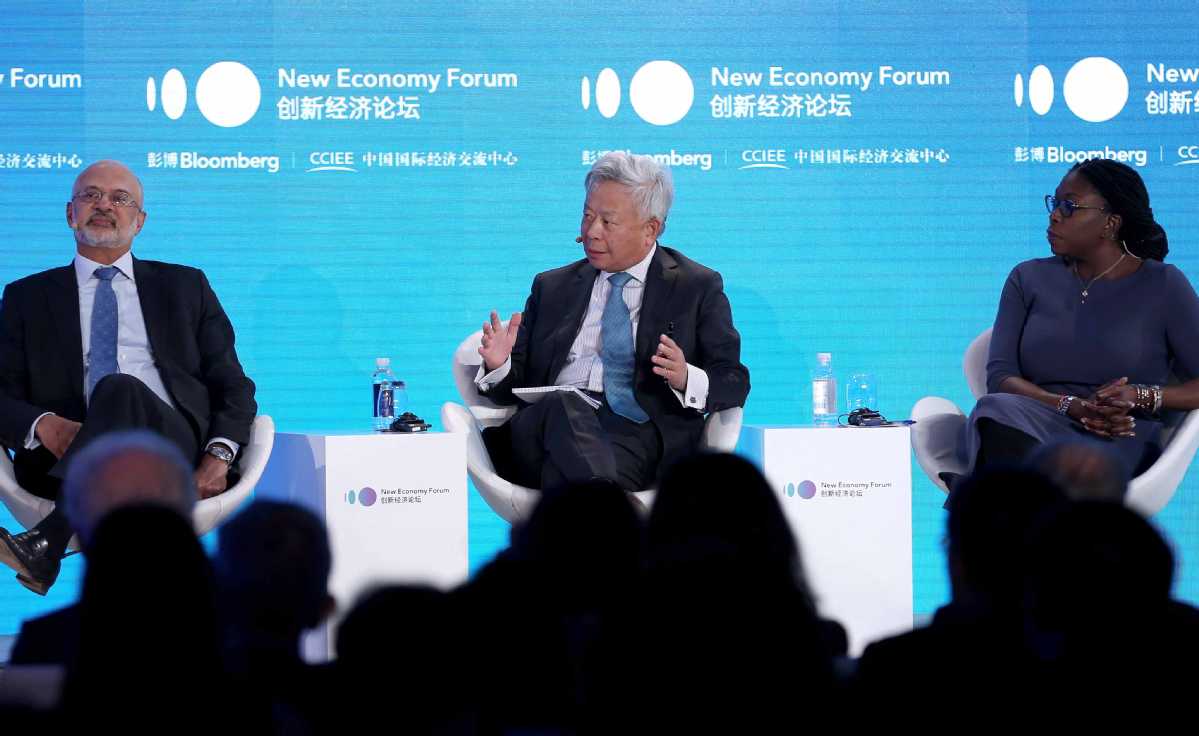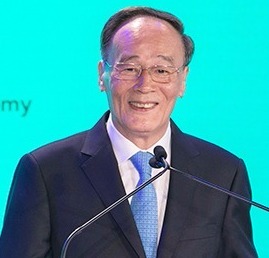Innovation set to underpin China's future development


Global efforts are needed to tackle challenges of protectionism and unilateralism
China will focus on innovation-driven development and contribute to building an open, fair and balanced global growth model that will enable all countries to enjoy the benefits of globalization, Vice-President Wang Qishan said on Thursday.
Wang called for greater global collaboration to address problems of unbalanced and insufficient development and challenges posed by rising protectionism, unilateralism and populism.
The vice-president made the remarks during the opening ceremony of the New Economy Forum in Beijing co-organized by the China Center for International Economic Exchanges and Bloomberg.
"We should focus on development and stick to innovation-driven growth, coordinated actions, fairness and inclusiveness, to build an open, win-win cooperation model ... and to enable people from all over the world to enjoy the benefits of economic globalization," he said.
The vice-president also called for joint exploration for new ways and methods among countries to address problems such as "governance deficit" and called for efforts to build a more reasonable and fair global governance system with the United Nations at the core.

Wang's remarks were echoed by other participants at the forum who called for greater cooperation among countries to promote innovation and application of technological breakthroughs and better protection of intellectual property rights.
"Innovation is the primary driver of development. Countries should promote the application of innovative ideas amid rising uncertainties and risks facing the global economy," said former vice-premier Zeng Peiyan, who is now chairman of the China Center for International Economic Exchanges.
Xie Fuzhan, president of the Chinese Academy of Social Sciences, said that technology and innovation is crucial for China's goal of modernizing its economy and enhancing its competitiveness.
"For China to maintain healthy and stable development, the key is to keep deepening reforms, pushing further opening-up and encouraging innovation so that we can spark the enthusiasm of State-owned enterprises, private businesses and foreign companies and fully unleash the market potential," Xie said.
He said that the next phase of China's reform will focus on improving its economic system and governance as well as its top-level policy planning capacity.
Jin Liqun, president of the Asian Infrastructure Investment Bank, said at a panel discussion that China and the United States, the world's two largest economies, have a broad space to work together to improve the well-being of the rest of the world.
"We should look beyond the trade dispute," Jin said, calling for more international attention to jointly resolve problems faced by the world, such as climate change and development imbalance.
While China and the US are negotiating for a deal which hopefully could bring the ongoing trade frictions to an end, the growing rivalry and frictions in the technology sector between the two countries have also generated concerns among experts.
Zhang Yansheng, a senior researcher with the China Center for International Economic Exchanges said that the China-US friction in the technology sector and the US actions like putting Chinese technology firms onto its "entity lists" have seriously jeopardized global technology development.
"What China should do is to seek wider cooperation with scientists, professors, and businesses from the US, Europe, Japan and other parts of the world who are willing to see more global technological exchanges and cooperation," he said.
Zhang said that China should have enough historical patience, strategic willpower and rational thinking and join hands with international partners to bolster innovation.
Zhou Lanxu and Fan Feifei contributed to this story.




































